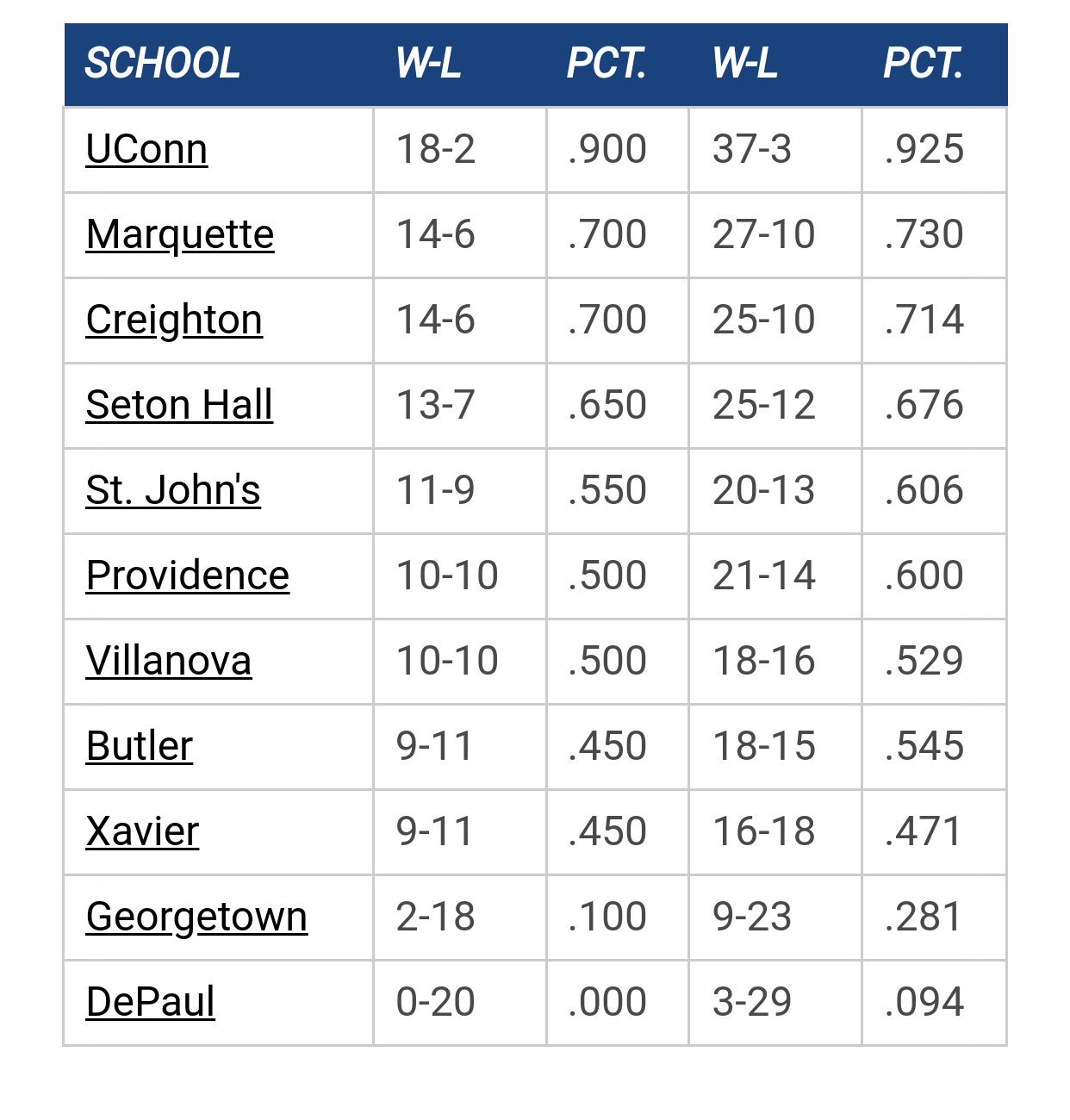- Welcome to MUScoop.
Really Good Day for the Future of Marquette Basketball by panda
[Today at 06:35:15 AM]
2025-26 College Hoops Thread by tower912
[Today at 05:38:38 AM]
Shaka cost us the game tonite by MarquetteMike1977
[February 15, 2026, 10:36:03 PM]
2025-26 Big East Thread by MuggsyB
[February 15, 2026, 09:15:02 PM]
2026 Coaching Carousel by GoldenEagles03
[February 15, 2026, 09:01:12 PM]
Marquette Team Rankings by Newsdreams
[February 15, 2026, 07:16:49 PM]
MU/XU Game Thread by willie warrior
[February 15, 2026, 11:36:52 AM]
[Today at 06:35:15 AM]
2025-26 College Hoops Thread by tower912
[Today at 05:38:38 AM]
Shaka cost us the game tonite by MarquetteMike1977
[February 15, 2026, 10:36:03 PM]
2025-26 Big East Thread by MuggsyB
[February 15, 2026, 09:15:02 PM]
2026 Coaching Carousel by GoldenEagles03
[February 15, 2026, 09:01:12 PM]
Marquette Team Rankings by Newsdreams
[February 15, 2026, 07:16:49 PM]
MU/XU Game Thread by willie warrior
[February 15, 2026, 11:36:52 AM]
The absolute only thing required for this FREE registration is a valid e-mail address. We keep all your information confidential and will NEVER give or sell it to anyone else.
Login to get rid of this box (and ads) , or signup NOW!
St. John's Date/Time: Feb 18, 2026, 8:00pm TV: TNT Schedule for 2025-26 |
||||||
User actions


